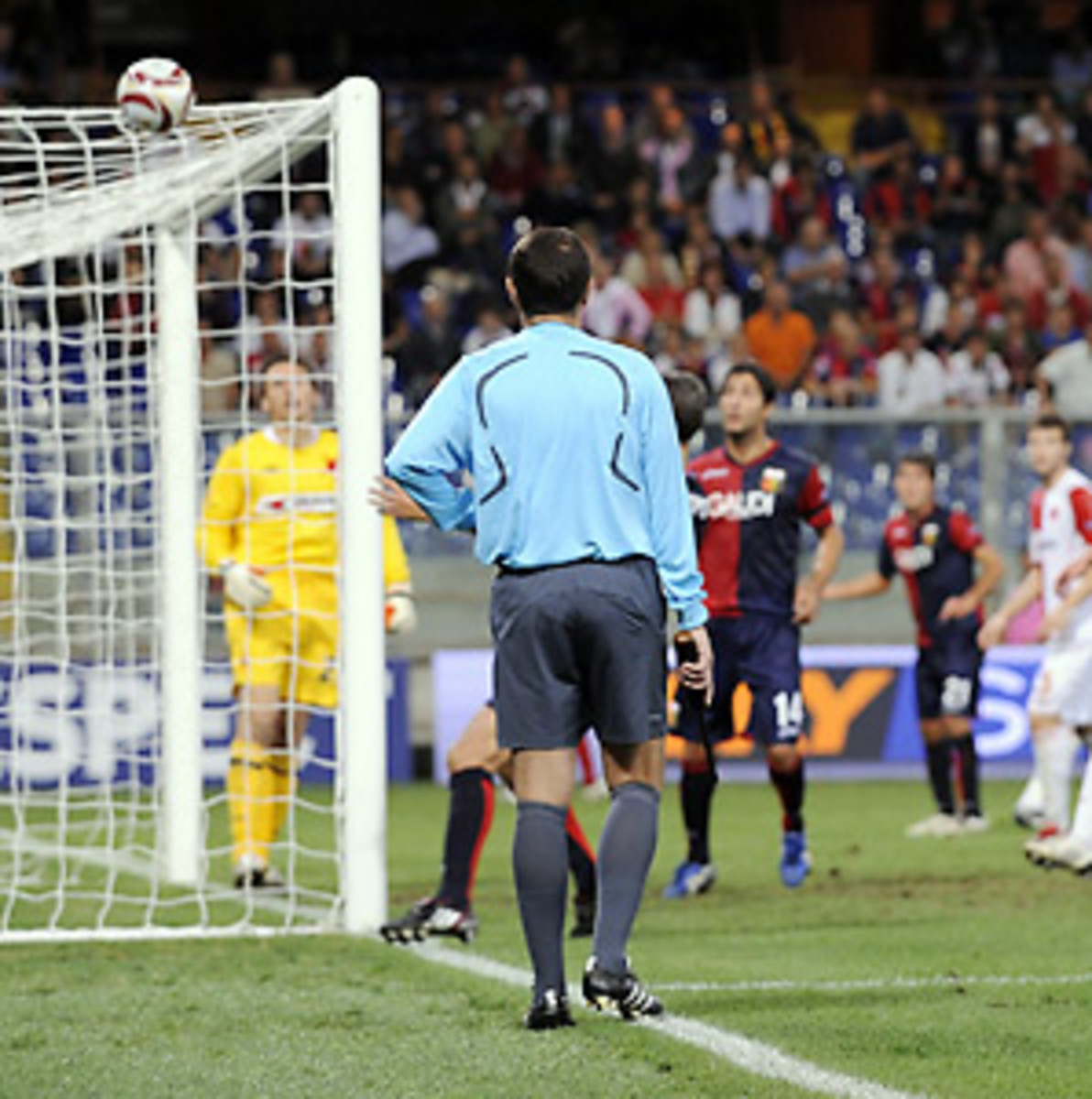MLS should test goal-line officials


I'm not surprised that FIFA has decided not to increase the number of game officials for next year's World Cup, and I'm also not surprised at the narrow-minded vitriol generated in response.
Every World Cup, it seems, FIFA surprises the world with change in the rules or their interpretation or enforcement right before its most prestigious competition, and immediately pundits and coaches and executives roar in protest. Sometimes it matters differently, but the effect is much the same; in 1992, it changed the offside law to "even is on," which triggered confusion and consternation and revised definitions of what that meant dependent on the position of feet, arms, heads and torsos.
FIFA can't win. It gets ripped when it makes changes for the World Cup and gets ripped when it doesn't. Now, that doesn't mean come June, some unforeseen decree will come down from on high, but there's precious little data at this point to declare that goal officials are the way and the light to greater peace and understanding.
In my perfect world, there would be an official on or near the goal line, to eyeball goalmouth melees and other incidents difficult if not impossible for the referee and his assistants to discern, as well as lipstick cameras or other such video supplements to determine if the ball has crossed the goal line.
The goal officials would be used for goal-line decisions as well but their greater value would be as a deterrent, for the presence of officials near each goal would sharply reduce the chances of Thierry Henry getting away with a blatant handball in the penalty area to set up a goal, and perhaps give a clearer of view of exactly what happens when a goalkeeper dives for a ball at an opponent's feet.
FIFA rules prevent the attachment of cameras or anything else to the goals or the nets, and a goal-line angle is essential, so cameras mounted on a pole or somewhere in the stadium would have to be used, as they have been in England and several other countries. The evidence isn't always irrefutable, but it's reliable, which is a lot better than what we have now when a ball dribbles along the goal line before being cleared, or thunders off the bottom of the bar, onto the field and back into play.
It's probably feasible for MLS to install goal-line cameras as a staple of its television coverage, but mounted cameras and technicians to operate them are expensive and, though cheap and simple, lipstick cameras would contravene FIFA rules. And MLS has a lot on its plate, with CBA negotiations getting more and more contentious, a combine and draft next month, a new team to start up in Philadelphia and a busy 2010 schedule to iron out.
But I'd like to see MLS and U.S. Soccer volunteer use of goal officials in some capacity, to get additional data to that being collected by its use in the Europa League. Too many goalkeeper-forward confrontations, possible hand balls and Greco-Roman wrestling bouts are escaping proper observance. The officials are obviously doing the best they can, but they are just as obviously missing too much.
There are myriad possibilities if MLS doesn't want to tinker with regular-season games: U.S. Open Cup and SuperLiga are two opportunities. At the behest of U.S. Soccer, using extra officials for the finals of its annual Development Academy program would test the concept in high-level competition.
Granting such authority to additional officials might be a touchy subject with referees, but like the assistant referees, they could serve in a similar capacity; equipped with flags, they would rule on goal-line decisions and watch for goalmouth incidents, especially during set plays, and communicate with their fellow officials electronically.
Just about everyone except FIFA agrees the modern game is too fast and too competitive for just one man to handle most of the burden, and maybe a two-referee system makes more sense. But with the goal officials experiment already in use, there should be more lab work.
Maybe one extra official on the goal line wouldn't suffice. Yet in any case, the idea can't be evaluated if it isn't tested. FIFA has good reason to proceed with caution regarding its showcase event; in this country, there are clear and valuable opportunities to advance the cause of the game.
